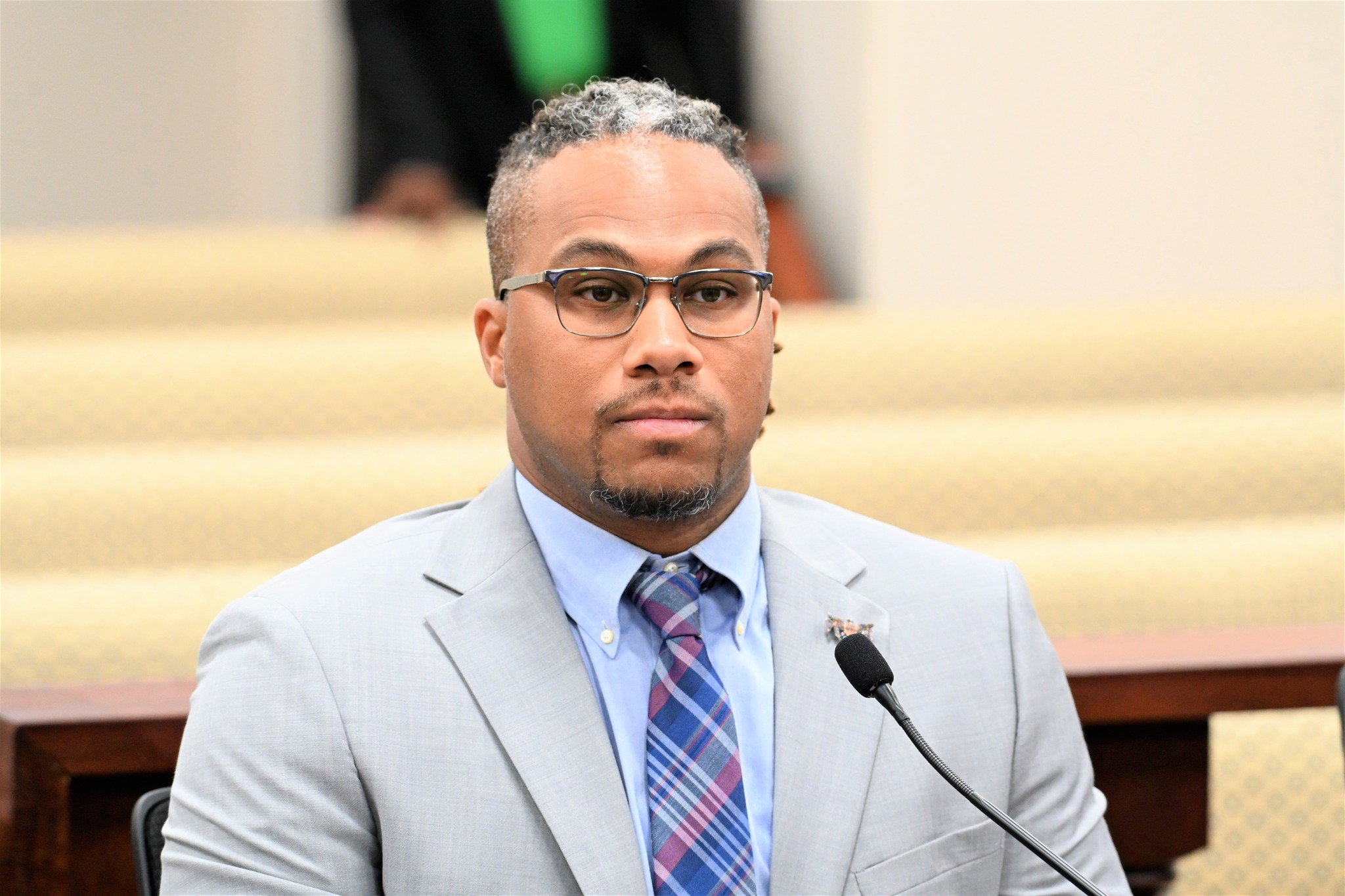
With an unallotted balance of $456,219.58 from fiscal year 2023 looming over the Virgin Islands Energy Office, legislators are concerned with the Governor’s FY 2024 recommendation increase to $1,568,122 for the office during Wednesday’s Committee on Budget, Appropriation, and Finance hearing.
According to Act 8617, the office was appropriated $1,562,305 for FY 2023. The office’s utilities of $12,000 were removed and placed in the Single Payer Utilities. An additional $7,435.01 and $1,567.51 were added to personnel services and fringe benefits. As of May 30, the allotment to date equaled $1,103,087.94, which leaves an unallotted balance of $456,219.58, according to testimony.
Sen. Donna Frett-Gregory’s observation of an outstanding balance led to Energy Office Director Kyle Fleming’s explanation from a project in 2017 with a partial payment of $401,105. Fleming stated, “It was an attempt to establish an energy-saving contract with FPL (Florida Power and Light) Energy Services to inspect the Juan F. Luis Hospital, reviewing the energy-saving measures they could take.”
Frett-Gregory clarified the matter stating that the balance was carried over as an outstanding vendor payment from 2017, and per Frett-Gregory’s calculations, “there should be $291,936 sitting at the Public Finance Authority that is available for reprogramming” for VIEO.
A breakdown of the total general fund FY 2024 budget is $841,407 for personnel services, $382,633 for fringe benefits, $307,982 for other services, $14,000 for utility services, and $22,100 for supplies, said Fleming.
With salary increases not listed, an updated list was requested, Frett-Gregory also urged the office to clear their books and to reach out to PFA to have an accurate account of the funding available for use.
Currently in use, the office is managing $5.6 million in federal grant funds; however, missing from the report is a list of active grants, the award and expiration dates, and the expenditures and balances. Senators requested the breakdown of federal grant usage to cross reference for the upcoming budget overview.
While leveraging federal funds for projects and programs is commonly the practice of the VIEO, the agency covers a wide spectrum of activities that could not be supported without the General Fund. From supporting inter-agency energy best practices consultation, energy policy development, public outreach & education, and vetting of private energy companies seeking tax incentives, the VIEO’s flexible role means reliance on federal funds alone would disrupt critical services we provide to the Virgin Islands community.
Lawmakers applauded the Virgin Islands Energy Office on their “appropriate contractor insurance” that resulted in the replacement of 100 solar panels stolen from the active job site at St. Croix Educational Complex on July 5. “The panels have been delivered to the job site and progress continues with no contract extension requests,” said Fleming.
The culprits of this grand larceny cut through the perimeter fence of the job site, dismantled packaging that housed the solar equipment, removed panels, and fled the scene undetected. All the solar equipment that was stolen from the site was funded by the Department of Interiors’ Energizing Insular Communities grant awarded to the VIEO.
Senators were concerned if the incident would offset the upcoming budget for the department; however, “despite the unfortunate circumstance, the project continues to progress towards completion. The VIEO has been working closely with the VIDE and the VIPD to ensure improved security is available to secure the job site,” assured Fleming.
With V.I. Water and Power Authority currently resolving its issue with Vitol, Sen. Dwayne DeGraff asked if the energy offices’ net metering program is still available to be put back in place to assist the people of the territory. The net-metering program allows residents to offset their electricity costs by selling power back onto the Authority’s grid.
Fleming, unfortunately, told the Senate body that it is not possible to continue the net metering program aside from the customers who are “grandfathered in”; however, moving forward, they are expecting to see movement away from the net metering program and value added to the battery.
The energy director explained, “The difference in solar which is an uncontrollable load that varies throughout the day, whereas the battery system at someone’s home at full capacity, the utility can get more out of the resource it can control verse the resource it can not control.”
In terms of control, transition, and value, the energy office has controlled and completed its transition from gasoline vehicles throughout its entire department and has accumulated the government fleet with over 30 electric vehicles. Senators couldn’t help but wonder about the saving costs and does VIEO have plans to implement a policy across the board for all GVI entities to purchase electric vehicles.
Act 7075 mandated alternative fuel for the GVI, which is the “driving force” behind the switch to electric but the “number one challenge is vehicle availability” and “being able to procure in bulk,” said Fleming. “We have been getting challenges with local dealerships to make vehicles available for the GVI to purchase,” he said.
“The local vendors are going to have to lead, follow, or get out the way,” said Frett-Gregory.
Sens. Donna Frett-Gregory, Novelle Francis, Marvin Blyden, Javan James, Carla Joseph, Ray Fonseca, Diane Capehart, Milton Potter, Dwayne DeGraff, Marise James, Kenneth Gittens, and Samuel Carrion attended Thursday’s hearing.


